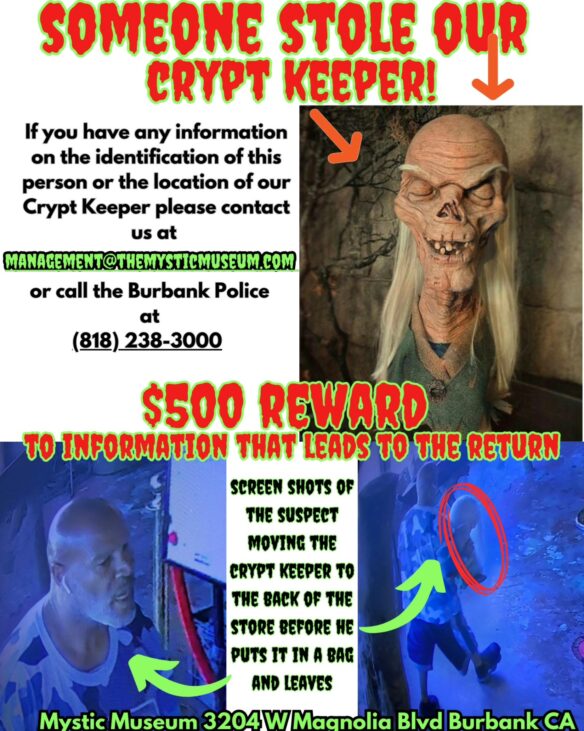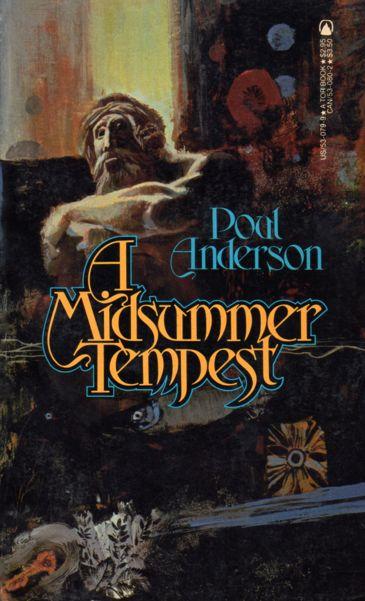(1) HAS DARK REGIONS PRESS REACHED THE END? Dark Regions Press is a small press founded by Joe Morey in 1985, specializing in horror and dark fiction. His son, Chris, is the current owner.
Their business website is down and one of their published authors William Meikel is calling it the “End Of The Line At Dark Regions Press”.
… With them also taking on the Dark Renaissance books when that venture folded, Dark Regions Press ended up as home to a lot of my material – more than fifteen books in total, and I was always happy to see it there, given the tremendous production values that the company put into their products, particularly the hardcovers…
So, from a purely selfish viewpoint, I’ve been mostly happy there.
But over the years there have been many rumblings of discontent, from both authors and customers, and it’s been getting increasingly hard for me to ignore them. I’ve pulled some of my work for them in recent years, and just last month was asking them to release rights back to me on some others… maybe my spidey-senses were tingling just enough to try to tell me something.
And now there’s the current shitshow.
The website is down, the company is up for sale (although my books are still being sold on the online sites), and Chris Morey, the owner, is incommunicado. I’ve seen reports of customers being over $1000 in the hole on preorders, and of people waiting for many years for books that now look like they’ll never arrive. I can’t begin to imagine how much money is owed, given the number of people I see complaining over the past few days. It’s turned into one of the all time great small press publishing clusterfucks.
Right now I’m trying to get in contact with them to find out exactly what’s going on, but I think this is the end of the line for me there whatever happens to them now.
Brian Keene remembers reporting issues with that publisher before:
Bev Vincent on X.com shared this link showing Dark Regions Press announced in April it was for sale: “Profitable online business with 17,000 customers for sale – in business since 1985 — Dark Regions Press”.
Weird House Press shared what they know in a Facebook post on July 20.
It has come to our attention that Dark Regions Press has gone dark and their site has come down with no word to customers. We are aware that DRP owes a lot of books to a lot of customers. While Weird House is a separate entity from Dark Regions, many of you know that Chris at DRP is Joe’s son and that Joe used to own Dark Regions over a decade ago. As such, we feel compelled to make a statement and share what we know.
Some of you may be aware that Joe at Weird House was helping Dark Regions to fulfill some of the books they were behind on, including Transmissions from Punktown and Wolf Hunt 3. Weird House lent some of its resources to Chris to finish these books and fulfill orders. Small press is a tough business however, and we could only afford to help out so much. We had hoped that with the aid we lent to Chris and DRP the company could recover and make good on their commitments to customers. Unfortunately, Dark Regions seems to have needed more help than Weird House could afford to give.
As for what is happening with DRP, we honestly don’t know at the moment. We at Weird House were unaware of Dark Regions taking down their site. We only became aware of this when it was brought to our attention by a reader. Chris at DRP didn’t inform Joe or anyone else at Weird House of his intention to take down the site. At this point, we still don’t know the status of the company.
We wish that there was more we could do, but the truth is, Joe left Dark Regions many years ago. While we sympathize with those impacted by the actions of DRP, Chris and Dark Regions are responsible for their unfulfilled orders. We simply can’t afford to pay for the failings of another business because of a shared last name.
We will continue to share any information as it comes to us. Feel free to reach out to us via email or facebook messenger if you have any questions or concerns.
(2) THE SECOND SHALL BE FIRST. ScreenRant says there are “8 Book Trilogies Where The Second Book Is The Best”.
Book trilogies often suffer from second-book syndrome, with the middle installment feeling like a slow and unnecessary bridge between the opening and conclusion — though there are a few lucky trilogies where the second book is the best. Trilogies tend to struggle when it comes to balancing their stories, and when this happens, the middle typically suffers. This is why so many book trilogies peak with the first installment, though some manage to make a comeback during the finale, even after a lackluster second novel.
Then there are the rare trilogies that successfully navigate their second books, using them to raise the stakes and move the story forward ahead of the final chapter. In some cases, the middle novel is even the best of the series, as endings don’t always stick the landing….
At the top of their list:
1. The Farseer Trilogy By Robin Hobb (1995-1997)
Second Book: Royal Assassin
Robin Hobb’s Farseer Trilogy is considered a fantasy classic, and while all three books deserve their reputations, Royal Assassin stands out as the best. The Farseer Trilogy tells the tale of Fitz, and it continues well beyond this series. But this trilogy sets the stage for the rest of the Elderlings books, and it does a compelling job of it. Assassin’s Apprentice is a great start, but the later books surpass it. Again, the first book in any trilogy bears the burden of introducing characters and world-building elements that make it slower and more difficult to get into.
(3) BE ON THE LOOKOUT. Crypt Keeper taken from The Mystic Museum this weekend in Burbank, CA.

(4) MEANWHILE, BACK IN SCOTLAND. [Item by Steven French.] No, not that Glasgow festival!! “Glasgow’s independent game festival: an anarchic showcase of Scotland’s thriving virtual world” in the Guardian.
Walking through the doors of this boutique video game festival, you are immediately greeted by a bullet hell shoot-em-up with a painterly twist. In ZOE Begone!, you dodge and unleash attacks at blistering speed before the game erupts into a euphoric shower of pointillist colour, dazzling the eyes and punishing the thumbs. Next to it sits Left Upon Read; at first glance, a dark-fantasy Quake clone, but one that gives you the bizarre task of checking text messages on a smartphone as you slice your way through a dungeon. These are subversive games, taking well-worn design tropes and breaking them in witty, playful ways.
Rule-breaking is a major theme of Glasgow independent game festival, the latest iteration of an event previously known as Southside games festival. It took place last weekend at Civic House, nestled in the shadow of the M8, the concrete eyesore that carves through Glasgow and connects the city with the wider central belt. On display are more eccentric and smaller-budget games than those you see on shelves, all made by developers who either live within Glasgow or a short train ride away….
(5) GOING FOR THE BIGGEST BANGS. “’We pursued it to the point where we got a solid no’: Harrison Ford and Sandra Bullock Were Far from the Biggest Star Who Flat Out Rejected The Big Bang Theory Request” – Fandomwire has the story.
The Big Bang Theory wasn’t just a ratings juggernaut—it was a casting magnet for big names. But even the biggest magnets have their limits, as the show discovered with a few near misses that would have sent fan theories into overdrive….
…Forget the whispers of Harrison Ford as Professor Proton or Sandra Bullock as a mystery love interest. Big Bang almost landed a true legend: Ringo Starr (Richard Starkey). In an interview with TV Line, creator Chuck Lorre revealed his dream casting for the absentee Howard Wolowitz Sr.—Howard’s mysterious father….
(6) DEBORAH P KOLODJI (1959-2024). The Science Fiction and Fantasy Poetry Association today announced the passing of its former president, Deborah P Kolodji, on July 21.

She was an integral part to the growth and continuance of the speculative poetry community and the SFPA. A lifelong champion and educator of short form poetry, Debbie was well-respected through many writing communities. Her influence, talent and passion will be missed. She was the creator of the Dwarf Stars Award, and we believe she remains a giant in the cosmos.
She was the inaugural recipient of SFPA President’s Lifetime Service Award in 2023. The citation told about her many career highlights:
[She was] the moderator of the Southern California Haiku Study Group, the California Regional Coordinator for the Haiku Society of America, and a member of the board of directors for Haiku North America. She has given hundreds of haiku workshops over the past 15 years and recorded two Poetry Pea videos, one on “Exaggerated Perspective” in haiku (which referenced scifaiku) and one on speculative haiku.
She has long been an advocate for speculative haiku and scifaiku, writing several articles for mainstream haiku journals, including one in Terry Ann Carter’s book, Lighting the Global Lantern: A Teacher’s Guide to Writing Haiku and Related Literary Forms. She presented a talk on scifaiku at the 2007 Haiku North America in Ottawa as well as being on a haiku panel at the 2007 WorldCon in Montreal. She has given several scifaiku workshops at ConDor as well as participating in a scifaiku slam in San Diego.
The Dwarf Stars Award came out of Kolodji’s advocacy for short form poetry, and she edited several volumes of the Dwarf Stars anthology, including the first one. As SFPA president, she created Eye to the Telescope with Samantha Henderson, and co-edited the first issue. The Vice President position was added to the SFPA board under her administration, and the SFPA also held its first poetry contests.
A native Californian, she has a degree in mathematics from the University of Southern California. With over 1,000 published haiku to her name, her first full-length book of haiku and senryu, highway of sleeping towns, from Shabda Press, was awarded a Touchstone Distinguished Book Award from The Haiku Foundation. Her e-chapbook tug of a black hole won 2nd Place in the Elgin Awards from the Science Fiction and Fantasy Poetry Association. Her new book, Distance, was co-authored with Mariko Kitakubo of Tokyo. This book was written in a collaborative form called “Tan-ku,” a conversation in tanka and haiku, where the tanka were written by Mariko and the haiku by Deborah….
(7) MEMORY LANE.
[Written by Paul Weimer.]
1974 – A Midsummer’s Tempest by Poul Anderson.

By Paul Weimer: Shakespeare, no surprise, is extremely popular and common to reference, allude and outright steal from by science fiction and fantasy authors. And why not? The Bard’s work is immortal, after all, and while most of his work is not genre as we understand it, plenty of it touches upon or outright waltzes into fantasy. But what if everything that Shakespeare wrote was true, especially the fantastic bits. What if Shakespeare’s work were history, not fantasy and quasi-history? Faeries, wizards, ghosts and more were all established facts in the world?
That’s the conceit of Poul Anderson’s A Midsummer’s Tempest, fifty years old this year.
The setting is the early 17th century in this alternate world, and we are in the midst of the English Civil War. The Roundheads and the Cavaliers are in deadly contention. Charles the First is on the edge of defeat. Prince Rupert, in our timeline, is one of the most interesting characters of the period with a varied career ranging from Cavalry officer to colonial governor, and cousin to several English Monarchs. In this world and timeline, in the course of the book, he teams up with the ward of his captor (love, true love, friends) and together they go through a whirlwind set of plots involving Titania and Oberon, the books of Prospero, and a lot more in their efforts to try and preserve Charles I as king of England. Chases, escapes, magic, romance and much more.
And if you like cinematic universes and multiverses, this novel is also for you. This novel features The Old Phoenix, an inn that connects to multiple worlds in Anderson’s verse, and Rupert meets characters from other Anderson universes in the process. A decade before Heinlein tried it in Number of the Beast, the appearance of the Old Phoenix in A Midsummer’s Tempest helps knit together a lot of the fantastic verses and worlds of Anderson’s worlds.
Oh, and did I mention the characters speak in blank verse, and sometimes outright poetry, in the bargain, with plenty of allusions to a slew of Shakespeare’s plays in the bargain?
This is one of the lighter, funnier and confectionary of Anderson’s oeuvre. Some of his work can be fraught with doom, dark destiny and a vision of fighting against fate bravely but in vain. A Midsummer’s
Tempest is the exception that proves the rule. The protagonists win, true love prevails, and the book ends in a proper marriage, Shakespeare style.
About the only other novel that even tries to come close to Anderson’s approach here is John M Ford’s The Dragon Waiting, which is pretty good company for A Midsummer’s Tempest to share.
(8) COMICS SECTION.
- The Flying McCoys witness a communications breakthrough. Or is it breakdown.
- The Argyle Sweater is full of pooh.
- Carpe Diem seems to be at a pitch meeting.
- Macanudo shows both sides now.
- The Far Side – “I have always wanted to pull over and read one of these tickets,” says John King Tarpinian.
(9) SCIENCE FICTION HOMEWORLDS ONE-DAY SPECIAL ON LEARNEDLEAGUE. [Item by David Goldfarb.] An SFF-related One-Day Special quiz appeared on LearnedLeague over the past weekend: Science Fiction Homeworlds. I got 8/12, which was good for 95th percentile since some of the ones I knew were relatively obscure to the LL community. (I didn’t do better because it branched out into media and video game franchises that I haven’t followed.)
(10) HE DID “PAY THE WRITER”. “Ryan Reynolds Paid Deadpool Writers From His Own Salary to Be on Set” he told Variety.
Ryan Reynolds recently spoke to The New York Times ahead of the release of “Deadpool and Wolverine” and remembered the humble beginnings of his R-rated superhero franchise. The actor said the first “Deadpool” movie finally got off the ground at 20th Century Fox after he’d already spent a decade trying to get it made. Reynolds even paid out of pocket for his screenwriters Rhett Reese and Paul Wernick to be on set because the scrappier production was not that of a normal comic book tentpole.
“No part of me was thinking when ‘Deadpool’ was finally greenlit that this would be a success,” Reynolds said. “I even let go of getting paid to do the movie just to put it back on the screen: They wouldn’t allow my co-writers Rhett Reese and Paul Wernick on set, so I took the little salary I had left and paid them to be on set with me so we could form a de facto writers room.”…
[Thanks to SF Concatenation’s Jonathan Cowie, Steven French, Kathy Sullivan, David Goldfarb, Anne Marble, Teddy Harvia, Mike Kennedy, Andrew Porter, John King Tarpinian, Chris Barkley, and Cat Eldridge for some of these stories. Title credit belongs to File 770 contributing editor of the day Paul Weimer.]
